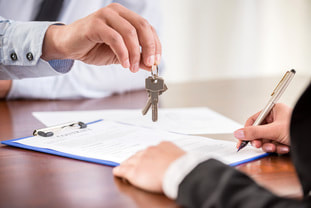Active Military and Veterans Home Buying Tips

More than 22,000,000 military personnel have used VA loans to buy a home. With its "no down payment" appeal, this loan program makes home buying an easier path.
But there are a few things that you need to know before you start the process. For example, did you know that "no down payment" doesn't mean "no money required"?
There are some standard costs to transfer ownership from the previous owner to you. Called "closing costs," these expenses roughly amount to about 3% of the loan amount.
Here in Staunton and Waynesboro, 3% is pretty accurate for closing costs. So if you're buying a home on the agreed upon price of $100,000, expect to pay around $3000 to close the deal.
Military Home Buying Closing Costs
 So what are those expenses? Here are the 9 most common closing cost expenses you will have to include to buy a home. 1. Credit Report This usually runs around $30. Buyers are responsible for this even if the loan doesn't close. 2. Earnest Money Deposit This is a deposit to show the seller that you're serious about buying the property. Whatever amount you choose for your earnest money deposit will go toward your down payment (if you have one), or to your closing costs. Depending on where you live, the deposit amount varies from 1%-10%.  3. Appraisal All VA loans require that the property to be sold have a real estate appraisal to ensure that the house is worth the agreed upon price. The appraiser will check the structure of the home, the mechanical systems, basement, crawl space, and so on. Although VA buyers pay for this cost upfront, it is sometimes possible to recoup that cost at the closing table. 4. Home Inspection This inspection is technically optional except for the pest control inspection, which is required in some states. However, with a home inspection, this is your opportunity to uncover any possible problems before you take ownership. It's money well spent! 5. Recording Fees This is the fee you pay the city or the county to record your mortgage transaction as public record. 6. Real Estate Transfer Taxes These are taxes collected to transfer the title from the previous owner to the new owner.  7. Title Insurance The lender requires title insurance to cover the lending institution. However, it does not require you to cover yourself! This one-time fee protects you from title issues incurred by previous owners. 8. Homeowner Association Fees (HOA) If you buy in an area that has a homeowners' association, you'll need to pony up for the application fee. HOA's require monthly dues, too. Those vary by association. 9. Loan Origination Fees Lenders can charge up to 1% of the loan to cover processing, underwriting costs, and origination, which is the fee charged to complete the loan. Buying and closing on a home is complicated. Just make sure you know all the costs involved before jumping in. It will make you an empowered homebuyer! Get more information on current VA mortgage rates and VA Home Improvement loans here. If you're a veteran or active military, ask about title insurance with Lilly Title & Settlement. Learn more about us at our website: www.lillytitle.com. |
 RSS Feed
RSS Feed